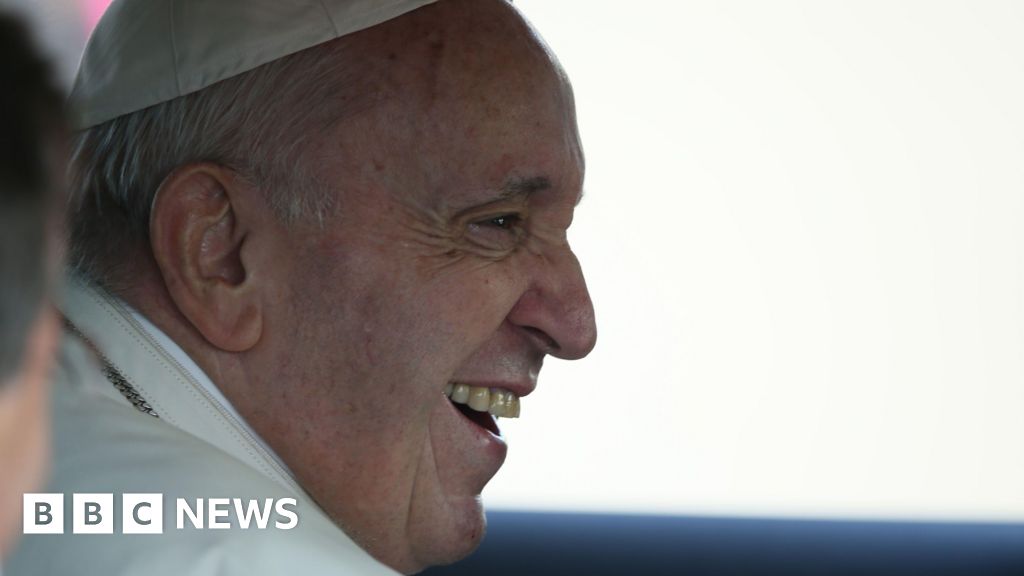 PA Media
PA MediaA university professor has said Pope Francis’s death is a “fragile” moment, as she recalled sharing a joke with the “charismatic” pontiff.
Prof Anna Rowlands, of Durham University, spent two years seconded to the Vatican during Francis’s papacy.
The professor of Catholic social thought and practice said the pontiff had roared with laughter when she told him she was a Manchester United fan the first time they spoke at length.
Pope Francis, born Jorge Mario Bergoglio in Argentina, died at 07:35 local time (06:35 BST) on Easter Monday at the age of 88.
His death comes after he appeared at St Peter’s Square on Sunday to wish “Happy Easter” to thousands of worshippers.
Prof Rowlands, from Manchester, said the Pope’s natural approach was to “find a point of human connection” with whoever he was speaking to.
She said he wanted to know what football team she supported, and when she said she was a “genuine, bona fide Mancunian, Manchester United fan by origin”, he had “roared laughing” and told his aide “you see, she must have a sense of humour”.
“And that was the first extended conversation I’d ever had with him. So his nature was to tease you slightly and to be good humoured, and find a point of human connection with you,” Prof Rowlands said.
“He was a totally normal, very at ease with people, kind of person.”
She said that despite his high office, he had a “common touch”, and while quietly spoken, he was “charismatic, warm, personable”.
‘Moral leadership’
Prof Rowlands was personally appointed by Francis as one of the few women to have governance roles in the Catholic Church, a job she said would previously have been held by a bishop.
She said his popularity within the Church extended beyond, because he was someone who showed “moral leadership” on issues ranging from the treatment of refugees to the climate.
Prof Rowlands said his death was “a moment which feels very brittle and fragile on the global stage”.
“I think he’ll be mourned as a figure who’s got that kind of moral leadership, who had real character, and who was able to speak, without constant caveat, about basic human moral obligations,” she added.



